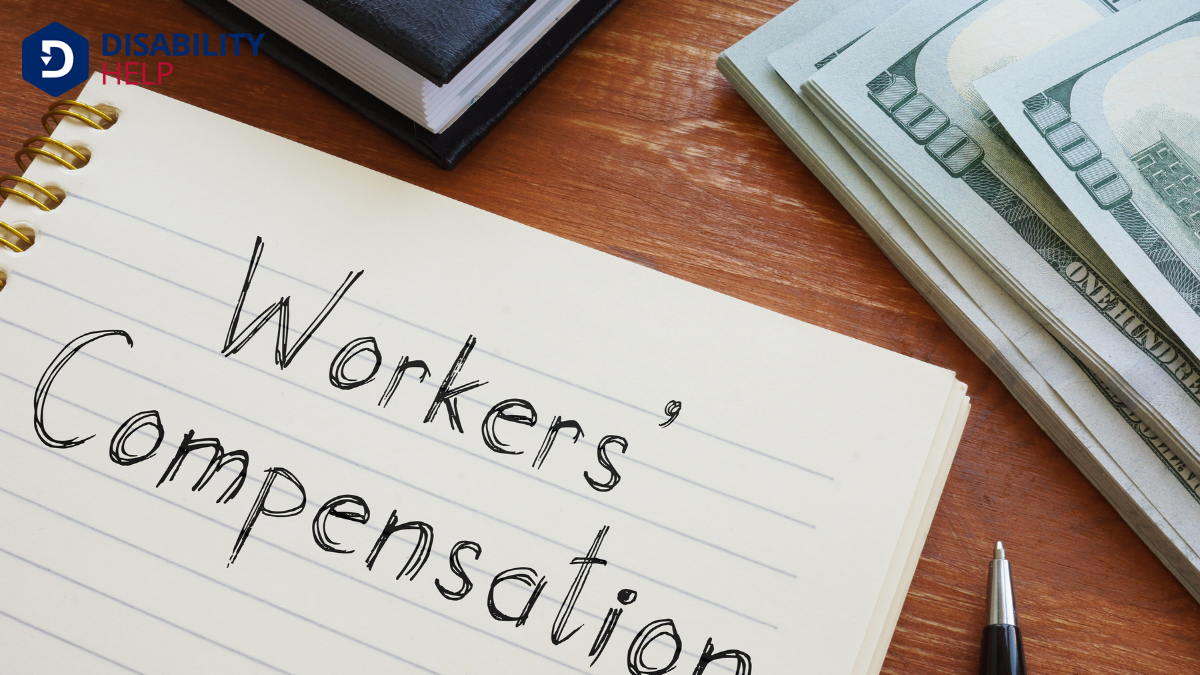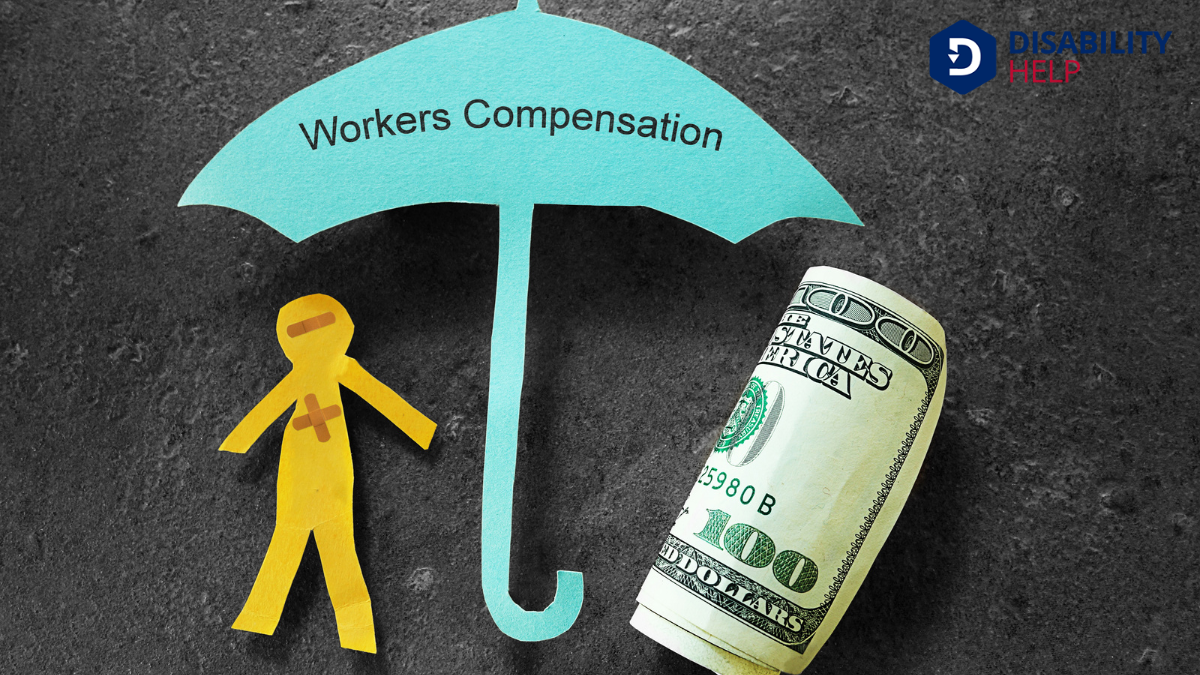In Washington, maneuvering through the duration of workers' comp benefits can be complex, as they depend largely on your injury's severity and recovery progress. You'll find that benefits often last until you've reached maximum medical improvement or can return to work. However, various factors, like your employer's ability to offer light-duty roles or participation in vocational rehabilitationServices that help individuals with disabilities prepare for, obtain, and maintain employment. programs, could affect this timeline. What happens when these scenarios unfold? Let's explore this further.
Key Takeaways
- Workers' comp benefits in Washington last as long as the injury or illness prevents work.
- The duration depends on injury severity, recovery progress, and work readiness assessments.
- Benefits may extend with ongoing medical treatment and necessary documentation.
- Participation in vocational rehabilitationThe process of helping individuals with disabilities achieve and maintain their optimal physical, se... can influence benefit length.
- Benefits generally end when maximum medical improvement is reached or after a return to work.
Overview of Workers' Compensation in Washington State
Although steering through the ins and outs of workers' compensation might seem overwhelming, understanding the basics in Washington State can make it manageable.
First, it's important to know that workers' comp is designed to help you if you're injured or become ill due to your job. In Washington, most employers must provide this insurance, guaranteeing you're covered for medical expenses and wage replacement.
The Department of Labor & Industries (L&I) manages the program, guaranteeing that claims are processed efficiently. You're required to report your injury to your employer and file a claim as soon as possible, which helps expedite the process.
Types of Workers' Compensation Benefits Available

When you're on workers' comp in Washington, you can access several types of benefits.
Medical coverage will generally last as long as necessary for your recovery, but it's crucial to stay within recommended treatment plans.
Wage replacement benefits help cover lost income, though they've specific limits based on your earnings and the state's guidelines.
Medical Coverage Duration
Understanding the medical coverage duration under workers' compensation in Washington is essential for maneuvering your benefits effectively. In Washington, medical benefits are available for as long as you need treatment related to your workplace injury or illness. The coverage includes doctor visits, hospital stays, surgeries, medications, and rehabilitation.
It’s important to keep your healthcare providers informed about your treatment progress and guarantee they document everything accurately. This thorough documentation supports the continuation of your medical benefits.
You don’t need to worry about coverage suddenly stopping; instead, focus on receiving necessary care. The goal is to help you recover fully and return to work safely.
Wage Replacement Limits
Workers' compensation in Washington provides several types of wage replacement benefits to support you if you're unable to work due to a job-related injury or illness.
These benefits can help you cope with lost income. Typically, you receive time-loss compensation, which is about 60-75% of your gross wages, depending on your marital status and number of dependents.
There's a cap, though—it's based on the state's average wage, guaranteeing you don't receive more than the specified limit.
If your injury leads to a permanent disability, you might be eligible for permanent partial or total disability benefitsFinancial assistance provided to individuals who are unable to work due to a disability, such as Soc....
It's essential to report your injury promptly and follow the prescribed process to guarantee you receive the benefits you're entitled to under Washington's workers' comp system.
Determining the Duration of Benefit Payments
When you're figuring out how long you'll receive workers' comp benefits in Washington, several factors come into play.
The severity of your injury, your recovery progress, and your ability to return to work all influence the payment duration.
It's also important to know there's a maximum benefit period, so keeping track of your claim status is essential.
Payment Duration Factors
Several factors influence the duration of workers' compensation benefit payments in Washington.
First, the severity and nature of your injury play a significant role. More severe injuries typically require longer recovery times, which can extend your benefit period. Your healthcare provider's assessment will guide the timeline for your medical recovery and your ability to return to work.
Additionally, your employer's ability to accommodate light-duty work can impact how long you'll receive benefits. If light-duty work is available, your benefits might be adjusted.
Also, cooperation with vocational rehabilitation can influence the duration. Engaging in retraining or skill-building programs can help you return to work sooner, potentially shortening your benefit period.
Always stay informed and proactive in managing your situation.
Maximum Benefit Period
In Washington, the maximum benefit period for workers' compensation varies depending on specific circumstances. You may receive benefits as long as you’re unable to work due to your injury or illness. However, the duration isn’t infinite.
Your case will be reviewed regularly to determine your recovery progress and ability to return to work. Temporary total disability benefits usually continue until you reach maximum medical improvement (MMI), which means you’ve recovered as much as possible.
If you're still unable to work, you might qualify for permanent disability benefits. It’s essential to stay informed and communicate with your claims manager. They’ll guide you through the process and help guarantee you receive the benefits you’re entitled to during your recovery period.
Factors Influencing the Length of Benefits
While maneuvering through workers' comp in Washington, understanding the factors that influence the length of benefits can be vital to managing expectations and planning for the future.
Your medical recovery is a key factor. How quickly you heal, based on treatment effectiveness and your body's response, directly impacts benefit duration.
The nature and severity of your injury also matter. More severe injuries often require extended recovery periods, leading to longer benefits.
Your ability to return to work is another consideration. If you can't perform your previous job or any modified duties, benefits might continue longer.
Regular medical evaluations and your doctor's assessments play important roles. They determine your progress and ability to resume work, affecting how long you receive benefits.
Conditions for Extending Workers' Compensation Benefits

Although managing workers' compensation can be complex, knowing the conditions for extending benefits is vital. In Washington, if your injury or illness requires ongoing medical attention and prevents you from working, you may qualify for extended benefits.
It's important to have continuous documentation from your healthcare provider, demonstrating that your condition hasn't improved enough for you to return to work safely. You might also need to undergo independent medical evaluations to confirm your need for continued compensation.
Staying proactive in communicating with your employer and workers' comp insurer guarantees that they understand your situation. Additionally, if you're engaged in an approved vocational rehabilitation program or retraining, this could support your case for extending benefits.
Always consult with a legal advisor to explore your options thoroughly.
Scenarios Leading to the Termination of Benefits
When managing workers' compensation in Washington, understanding scenarios that can lead to benefit termination is essential. Benefits might end for several reasons, and knowing these can help you navigate your situation effectively.
A few scenarios might cause termination:
- Return to Work: If you're cleared to return to your job, benefits typically cease.
- Medical Improvement: Once you reach maximum medical improvement, payments may stop.
- Non-Compliance: Failing to follow medical advice or attend required appointments can result in termination.
- Fraud: Providing false information or exaggerating your condition leads to immediate benefit cessation.
- Settlement Agreement: Accepting a lump-sum settlement may end your regular benefit payments.
Understanding these scenarios helps you prepare and plan accordingly, ensuring you're not caught off guard by unexpected changes.
Steps to Take if Your Benefits Are Discontinued
Suddenly find your workers' comp benefits discontinued? Don’t panic. First, contact your claims manager to understand why. They can clarify any misunderstandings or errors.
Next, review your claim paperwork. Verify all medical reports and documents are accurate and submitted. If discrepancies exist, gather evidence to support your case.
Consider reaching out to a workers' comp attorney. They can offer guidance, making sure your rights are protected.
File an appeal with the Washington State Department of Labor & Industries if necessary. You’ll need to act quickly, as deadlines are typically tight.
Stay proactive by attending all scheduled medical appointments and keeping detailed records.
Conclusion
In Washington, your workers' compensation benefits depend on your recovery and ability to work. You'll receive benefits until you reach maximum medical improvement or can return to a suitable job, possibly with light-duty adjustments. Regular evaluations and compliance with medical recommendations are essential. If your benefits end unexpectedly, don't hesitate to explore your options for appeal. Stay informed, proactive, and engaged with your healthcare and vocational programs to guarantee you receive the support you need.






